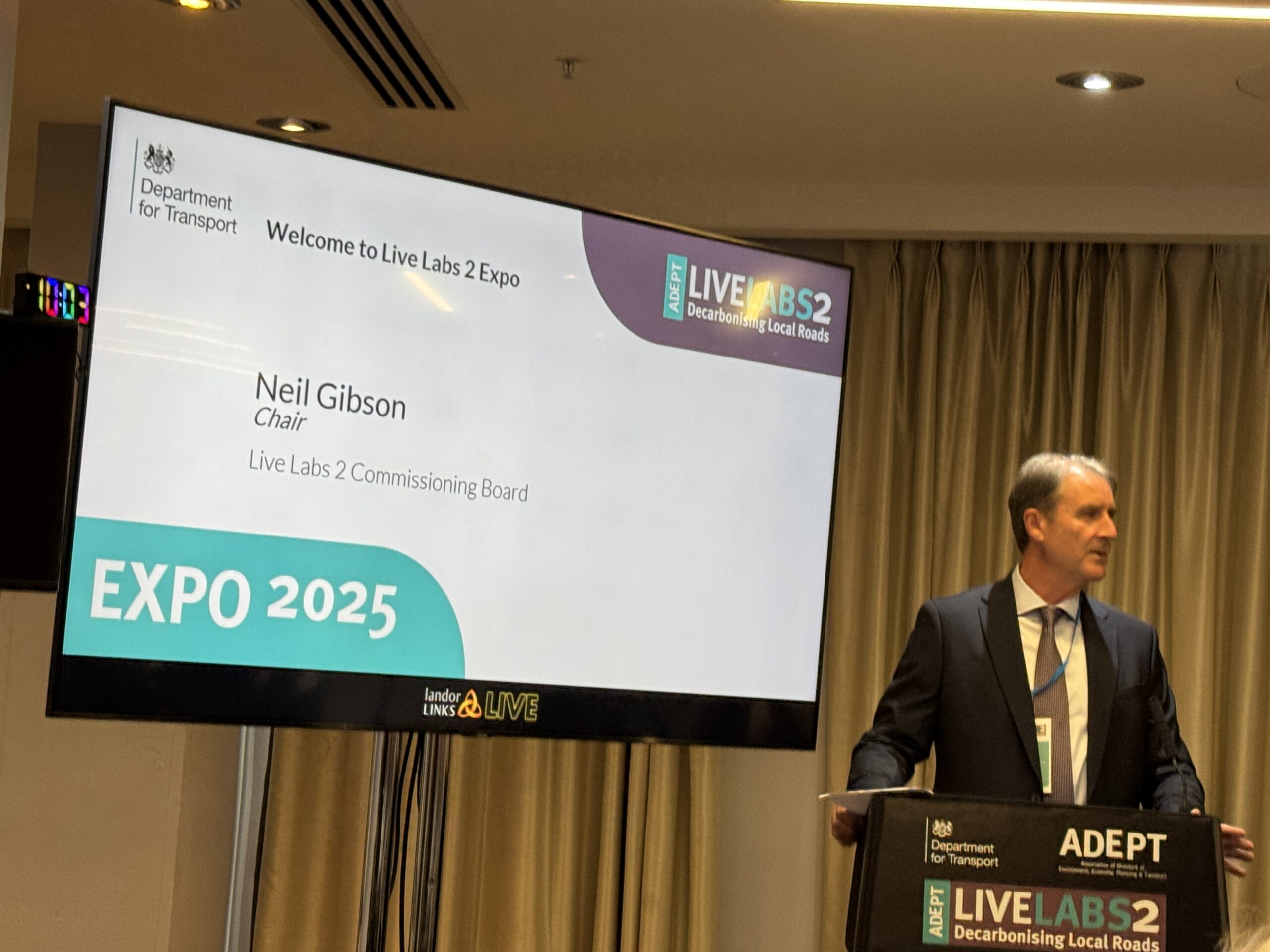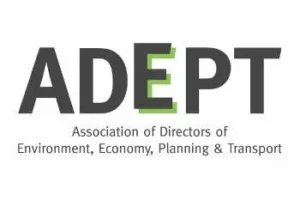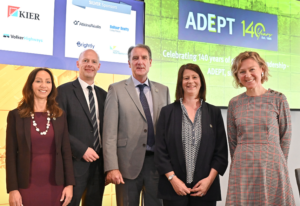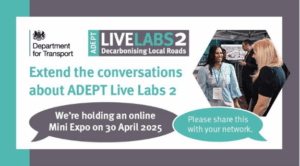The Chair of the Live Labs 2 Commissioning Board has admitted the work that local authorities are undertaking to reduce carbon emissions from transport shows the challenge “ain’t easy”.
Neil Gibson (pictured) was speaking while welcoming more than 200 delegates to the Live Labs 2 Expo in Liverpool, updating on the three-year, £30million, UK-wide programme funded by the Department for Transport and managed by The Association of Directors of Environment, Economy, Planning & Transport (ADEPT) that is running a number of projects working towards the decarbonisation of local highways infrastructure and assets.
“The political and financial pressure in the system in the UK and the prioritisation of what’s important is ever more intense,” Mr Gibson told the delegates. “Our UK emissions have reduced by half since 1990, but the challenge is to reduce that to 87% by 2040 to achieve 100% by 2050, so we’re not out of the woods yet. The things we have to do to get that step change again will get harder and harder. We need to look at where we can reduce emissions among road building and surface transport.”
He went on: “The roll of local authorities is key. The carbon commitment still remains an objective for councils, and a key to this is their roll as highway authorities. They’re looking at tailpipe emissions, but the decarbonisation of other aspects is still in its infancy, and that is where Live Labs comes in.”
Mr Gibson committed to sharing lessons as they are learned rather than at the end of the project, which has another year’s funding before five years of monitoring, making the project lives eight years.
Live Labs 2 has seven projects working across the following four interconnected themes: A future lighting testbed, UK Centre of excellence for materials, Corridor and place-based decarbonisation and a green carbon laboratory.
Giles Perkins, Programme Director for Live Labs 2, said the ethos of the project is around measuring carbon benefits, measuring capturing and sharing learnings quickly and widely and accelerating behavioural change. “If you haven’t got the evidence, time and resources to do it, we won’t succeed,” he said. “We have carbon focussed initiatives, with communication and outreach telling people what we’re doing, then we have our monitoring to underpin what is happening, then behavioural change will deliver achievable outcomes to get to a new business as usual and to scale it. This isn’t about small scale interventions – it is about small scale interventions that are scalable.”
Former Transport Secretary Lord McLoughlin, who is now Chair of Transport for the North, told the meeting the whole issue of decarbonisation is “vitally important” and that investing in transport is fundamental, but “one of the things he knows about transport is that it’s a long-term plan”.
The Live Labs 2 project is discussed by Future of Roads Minister Lilian Greenwood on this week’s Highways Voices podcast, available on Wednesday.
(Picture – Highways News)
























